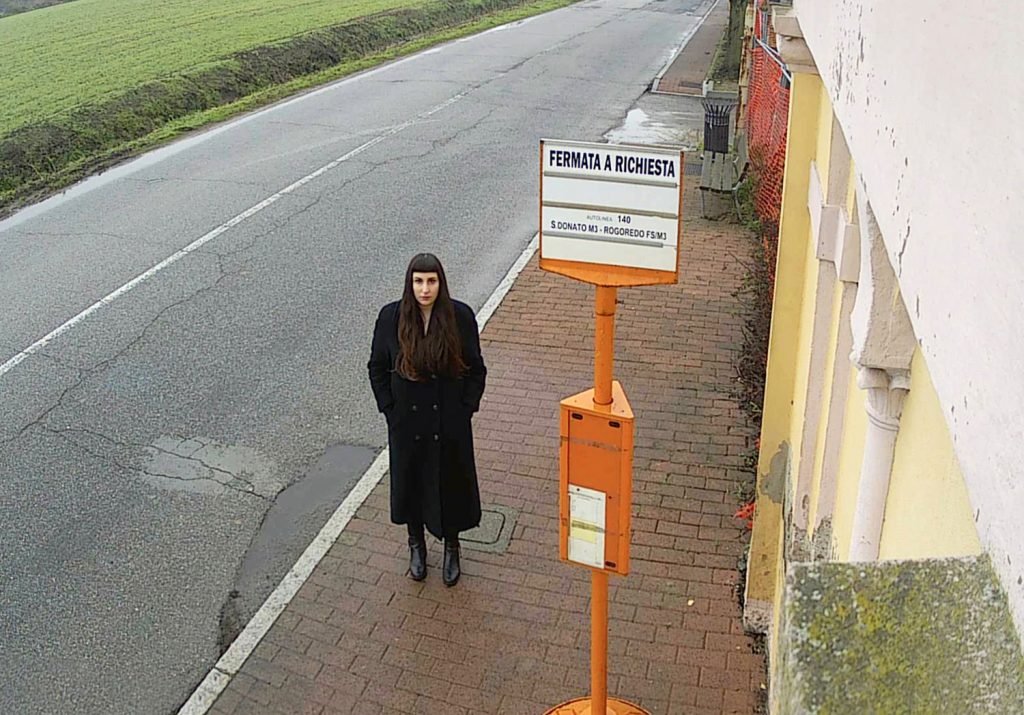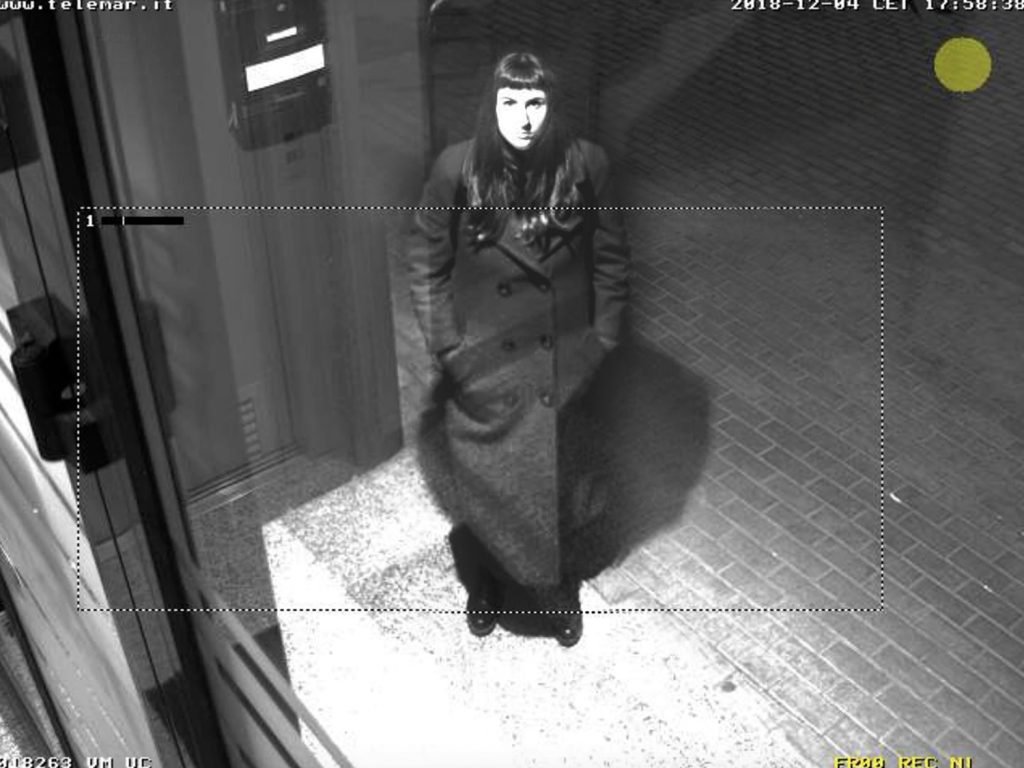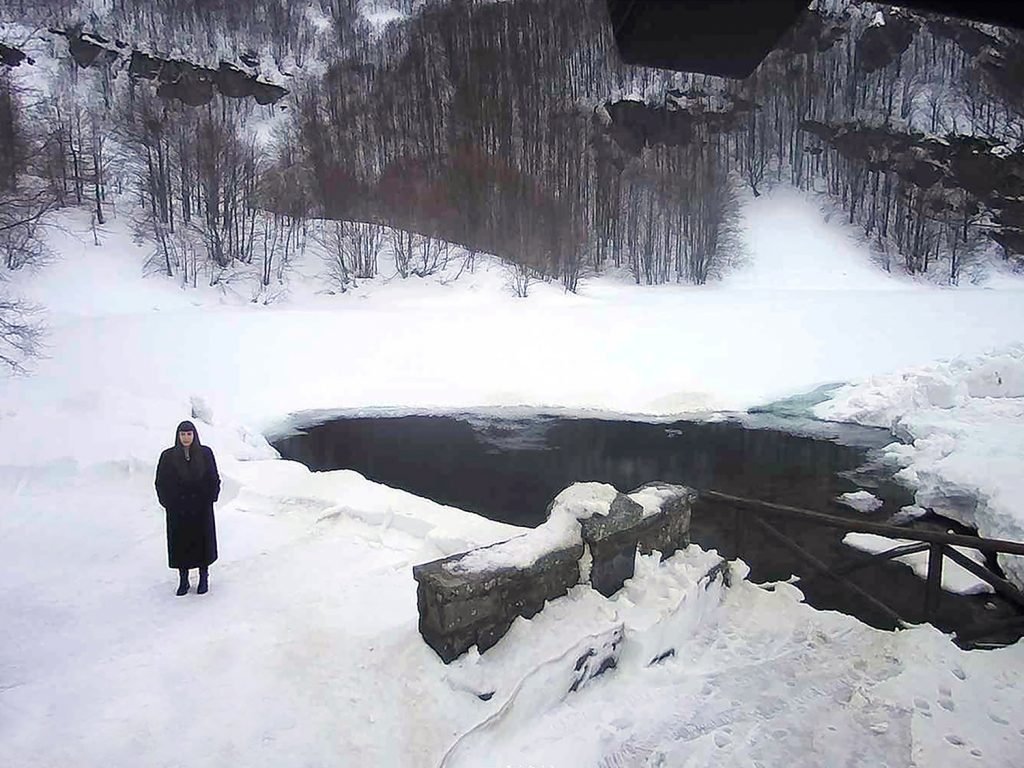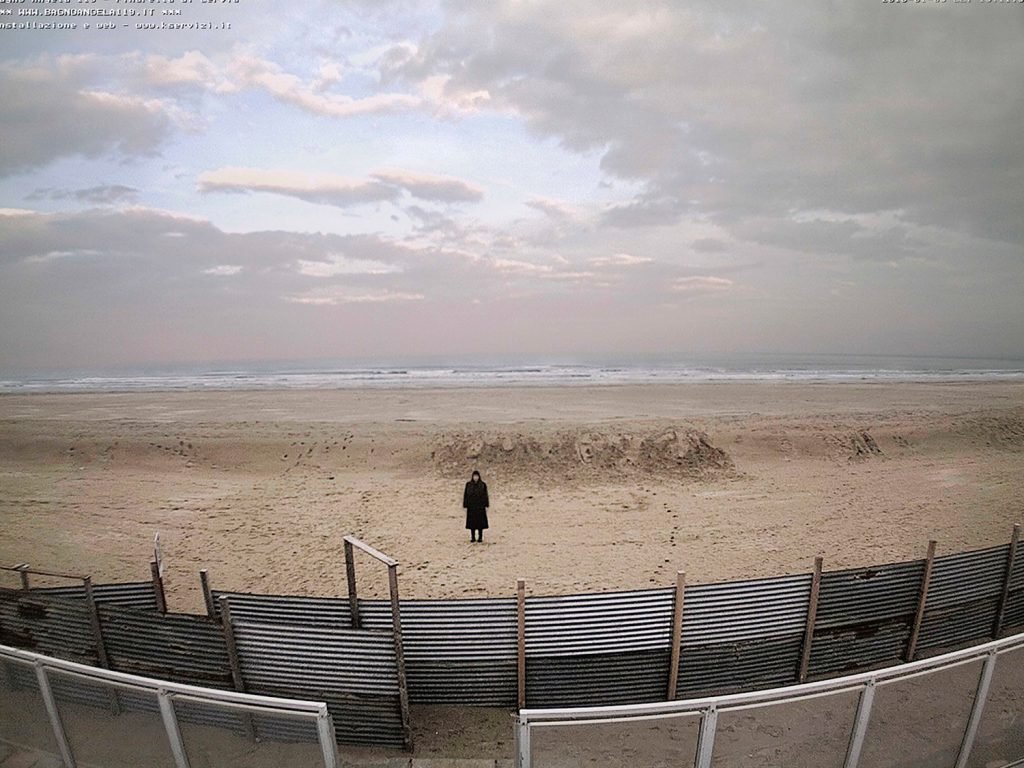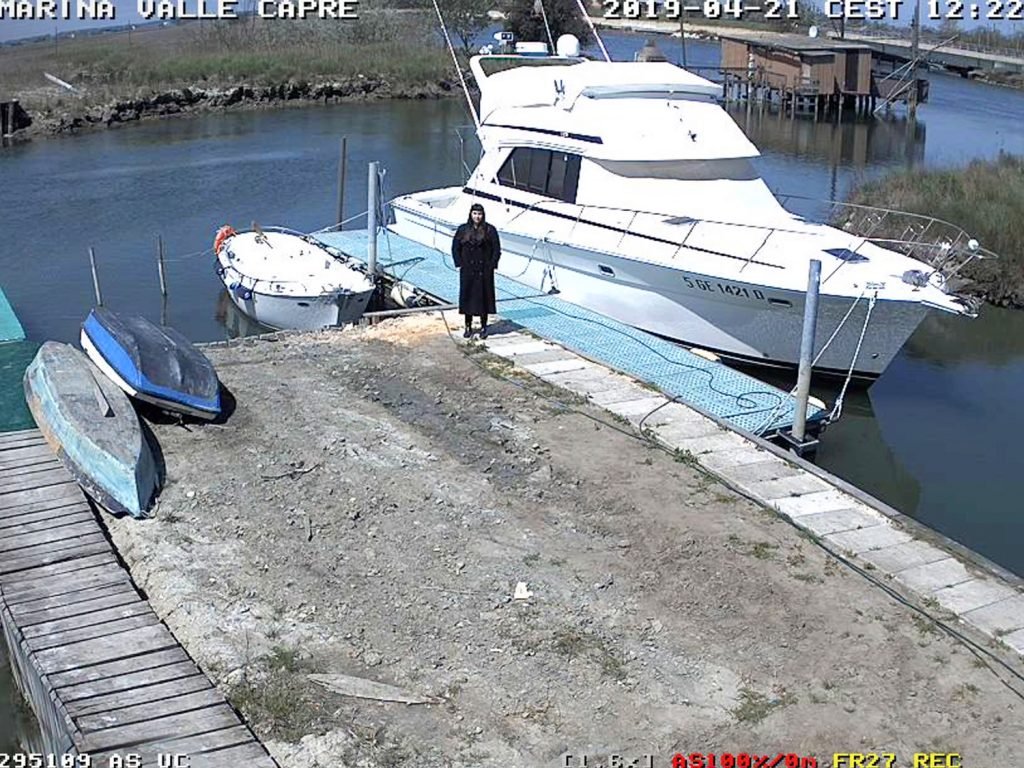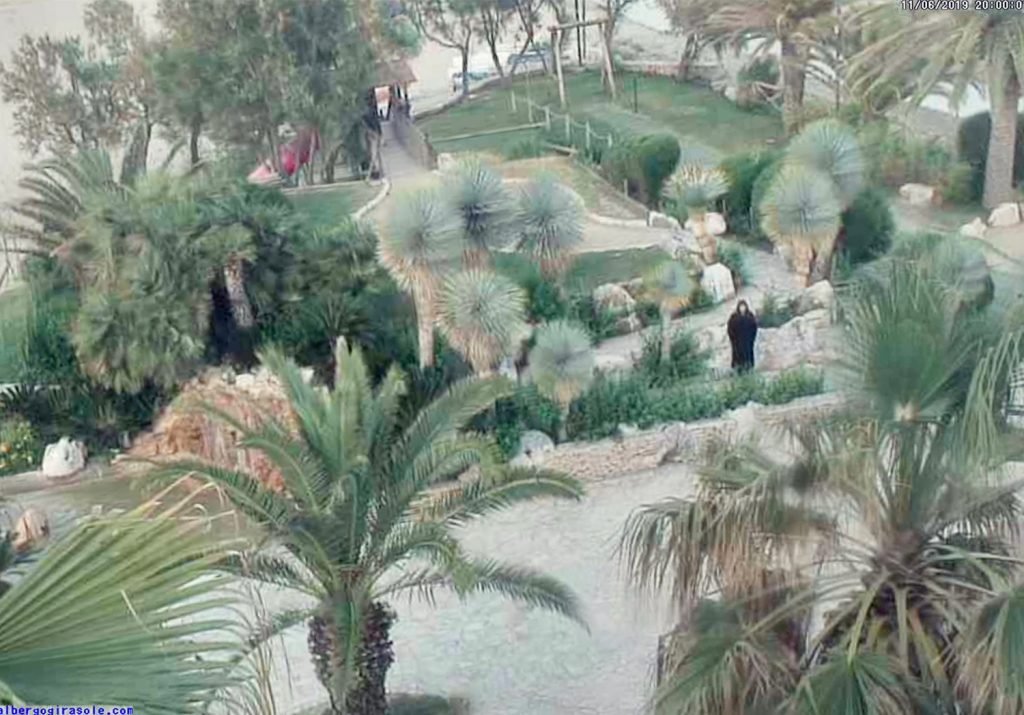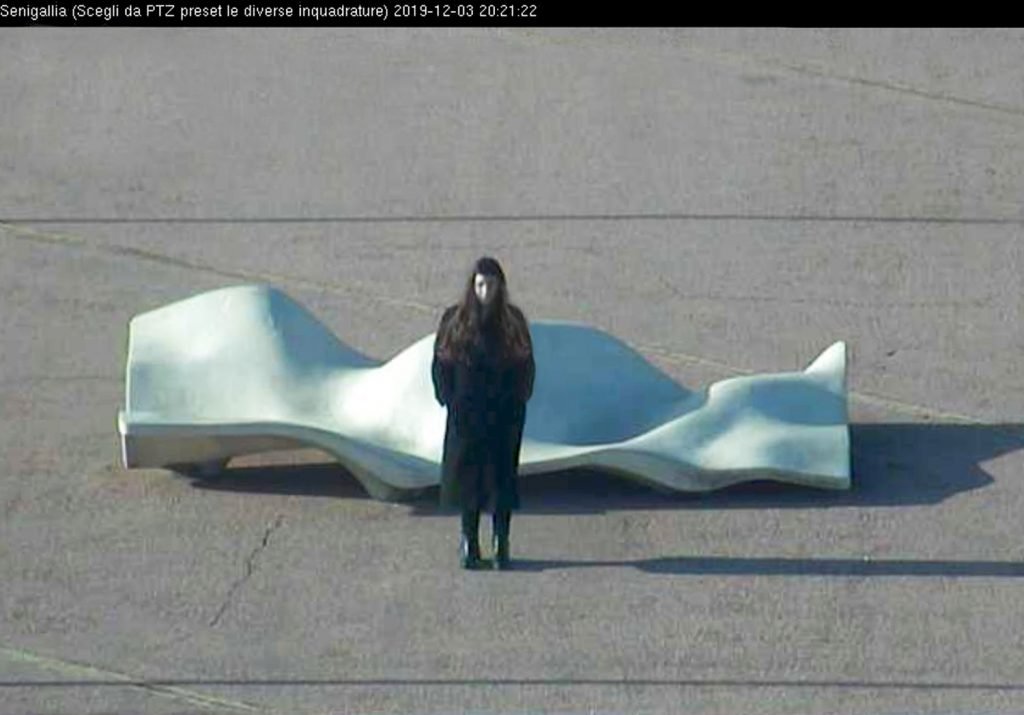Irene Fenara’s interest in theories of visual culture and the need to appropriate the tools of contemporaneity, which determine our way of seeing, become an opportunity to practice observation and reflection on images. Using an instrument usually foreign to art, that of surveillance cameras that acquire images for the sole purpose of environmental control, with Self Portrait from Surveillance Camera Irene Fenara relates power and vision. It is a series of self-portraits made by placing her in front of surveillance cameras already present in various places and traced back thanks to the data already present in the image. Because of the need to physically experience these places mostly just virtually experienced, she displaced her body to the filmed site, moving a process of appropriation of the image, her by right because her figure can be identified. The work bears the traces of a movement, that of the artist who goes from the studio to the surveillance camera and then saves the image that portrays her before the continuous flow cancels it 24 hours later. The artist’s gaze, turned towards the lens, becomes an act of resistance to impose her own identity on the controlled world, a reversed point of view that makes us reflect on the always reversible relationship between the observer and the one being observed.
Probably the selfie is an epoch-making change in photography not only because the subject and the viewer are the same thing, like self-portrait, but especially because it represents the moment when we detached our eyes from the lens, in a reversal of vision. To detach the eye from the lens means to get back into the automatic capabilities of the device. Machines, such as the telephone with which selfies are taken, see for us, using a whole series of predefined settings that determine the image and our perception of it. As well as surveillance cameras and Irene Fenara’s Self Portraits from Surveillance Camera in which formal and intent characteristics are closer to those of the long tradition of self-portrait, while the technical characteristics are closer to those of selfie as a digital performance and as an automated device.
Irene Fenara (b.1990) is an Italian artist graduated in Sculpture and Visual Arts from the Academy of Fine Arts in Bologna. Her research focuses on the way of seeing and practicing observation on images. She reflects on linguistic devices and she uses optical and electronic instruments of various kinds, from Polaroid to surveillance cameras, often improperly and in breach of their basic function. The act of vision is the central element of her work, which declines in her latest research on optical devices, often used as control tools, bringing attention to the always reversible overturning between who observes and who is observed. Her work has been exhibited in art galleries, public and private institutions such as Fondazione Prada Osservatorio (2016), Fondazione Fotografia Modena (2017), P420 (2017), MAMbo – Museo d’Arte Moderna di Bologna (2018), Palazzo delle Esposizioni (2018) and Kunst Merano Arte (2019). In 2019 she was finalist in different awards including ING Unseen Talent Award, Premio Cairo and she won Francesco Fabbri Award for Contemporary Arts.
